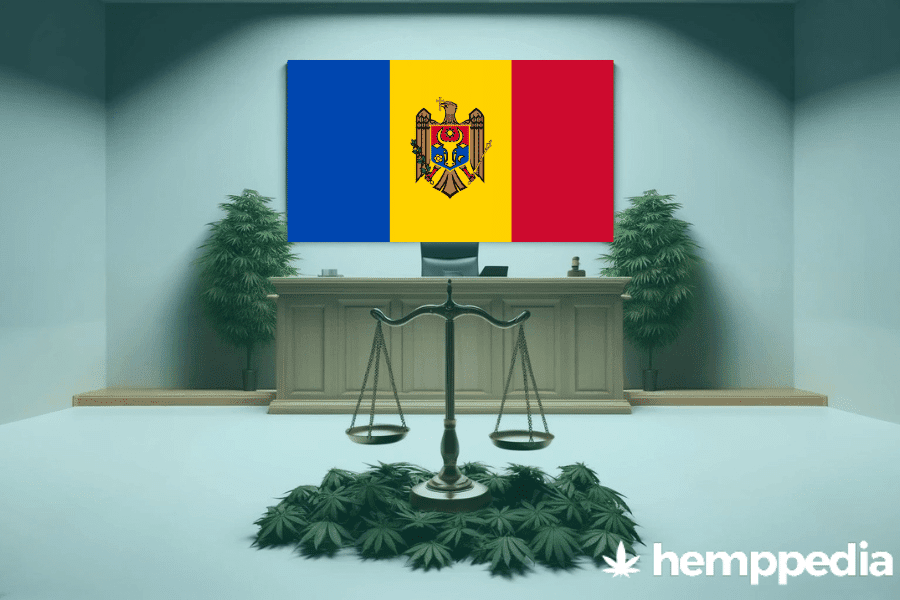TL;DR: Is CBD Legal in Moldova?
In the Eastern Europe country of Moldova, the legality surrounding the use and possession of Cannabidiol (CBD), a compound extracted from the cannabis plant, is complex and at times ambiguous. As of now, Moldova classifies CBD as a restricted substance, based on its interpretation of United Nations conventions. This means that, although CBD contains virtually no psychoactive substances like THC, it is nonetheless regulated and controlled by the country’s authorities.
- Usage: CBD is technically legal but is regulated and controlled by authorities.
- Possession: Limited to certain CBD medicinal products.
- Distinction from THC-containing products: CBD products must contain less than 0.2% THC to be legally available.
The world is witnessing a paradigm shift in legislation related to CBD infused products highlighting their medicinal and therapeutic significance, encouraging some regions to take a more relaxed and progressive stand on their use. However, aspects of its legality in Moldova are still subjected to restriction and enforcement.
Overview of CBD Legislation
Primarily, CBD (Cannabidiol) is a naturally occurring compound found in the flowers of the cannabis plant, commonly used in oils and edibles to provide a soothing and relaxed sensation. Not to be confused with THC (Delta-9-tetrahydrocannabinol), the primary psychoactive ingredient found in marijuana, CBD does not cause a ‘high’. Therefore, many countries differ in their legal approach to CBD compared to the rest of the cannabis and marijuana plant.
Legal Status
Regardless of its non-psychoactive nature, in Moldova, CBD remains a regulated substance, controlled under drug laws. The reason for such restriction is the potential ability of the substance to be abused or misused for recreational purposes despite its main intent as a medicinal drug.
Regulatory Bodies
CBD regulation and enforcement in Moldova is a responsibility shared by the Ministry of Health, Labour and Social Protection and the National Anti-Narcotics Committee.
Conditions and Restrictions
It’s important that any CBD used or supplied in Moldova must abide by THC content limitations, justifying its medicinal intent and not for recreational misuse. Only certified medicines with CBD are permitted. Strict product certification and labeling norms are enforced to ensure this regulation.
Historical Context
Cannabis has a long-standing history of being recognized for its medicinal and fibrous properties, with evidence of cultivation in Moldova dating back centuries. However, it’s only in the past decade that the conversation surrounding the decriminalization of the plant and its derivatives, like CBD, has gathered momentum in the social, political, and legal landscapes.
Possession, Use, Cultivation and Sales
In Moldova, the possession, use, and sales of CBD are stringently controlled. Only prescription-based CBD medicinal products are allowed, and it’s currently illegal to grow hemp for CBD production. The sale of CBD products is limited to only a certain class of pharmacies licensed by the Ministry of Health.
Enforcement and Penalties
Breaking the law in Moldova regarding the use, possession, sale, and production of CBD could invite penalties, including fines and potential jail time, depending on the severity of the violation. It’s noteworthy that the penalties for the misuse of CBD are not as harsh as for substances like marijuana, recognizing the former’s medicinal appeal.
Comparative Analysis
Comparatively, Moldova’s stance on CBD is more restrictive than certain Western countries where CBD products are extensively available, underlined by the rising acceptance of their therapeutic potentials. However, Moldova’s legal framework aligns with several Eastern European countries, indicating a regional approach towards managing CBD legality.
Conclusion
Summarizing the scenario,. Moldovais conservative yet open to recognizing the medicinal potential of CBD and its significance in healthcare. However, as regulations and perception evolve, it’s vital to keep an eye on this fast-developing field of health and law.

